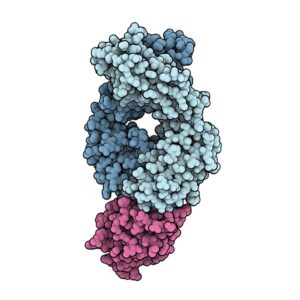ctDNA Following Surgery Predicts Cancer Recurrence
Circulating Tumor DNA examination after surgery can predict the recurrence of bladder cancer.
A blood test that identifies Circulating Tumor DNA (ctDNA) can predict the risk of recurrence of bladder cancer after surgery, which can be used to prescribe treatment.
There are approximately 573,000 bladder cancer patients worldwide, of whom approximately 212,000 died in the year 2020. The first common treatment for cancer is surgery. In surgery, some cancer cells are left with molecules leftover from the disease, or MRD, that cause the cancer cells to grow back. Instead of waiting for patients to have a recurrence of surgery, researchers began extensive research to diagnose MRD after surgery to identify patients at risk for metastasis and recurrence of bladder cancer.
In this regard, Circulating Tumor DNA (ctDNA) has been introduced as a biomarker for molecular residual diseases and recurrence. Research has shown that in liquid biopsy analysis for circulating cell-free DNA (cfDNA) performed on peripheral blood cells, they can be valuable diagnostic markers in oncology because of rapid and minimally invasive sample collection.
In cfDNA cancer patients, the same free DNA derived from Circulating Tumor DNA (cfDNA) is circulating around the cancerous tissue. It has been shown that genetic and epigenetic factors related to tumors can be identified by analyzing the patient’s cfDNA. As a result, cfDNA analysis has been considered for accurate oncology and personal treatment of each individual, and this process has now been considered in extensive clinical studies.
Researchers at Queen Mary University of London (UK) used a ctDNA fluid biopsy to evaluate the treatment results of an in vitro MRD test for bladder cancer in patients who had surgery. They used 581 people who were randomized to treatment phase III and study phase II to investigate whether atezolizumab could reduce the recurrence of cancer in invasive high-risk muscle carcinoma.

The drug, Atezolizumab
Atezolizumab is a man-made, engineered monoclonal antibody of the IgG1 isotype against the programmed protein of cell death ligand (PD-L1).
It is used to treat adrenal carcinoma, Triple-negative breast cancer (TNBC), Lung cancer (Non-Small-Cell Lung Carcinoma), Lung carcinoma (Small Cell Lung Cancer), and Hepatocellular carcinoma (HCC). The most common side effects of the drug are urinary tract infection, fatigue, loss of appetite, nausea, and infection.
The results of this study showed that patients whose blood test was ct DNA-positive after surgery had a higher risk of recurrence of cancer than patients whose blood test was ct DNA-negative.
Treatment with atezolizumab showed a significant improvement in disease-free survival (DFS) or overall survival (OS) in the entire study population. However, in the subgroup of ct DNA-positive patients evaluated in this study, treatment with atzolizumab significantly improved DES-OS compared with the control group. In ct DNA negative patients, there was no difference between those who used atezolizumab and those who did.
“These new findings identify cfDNA as a marker for residual disease and response to atezolizumab,” said Dr. Powles, a professor of urinary oncology at Queen Mary University in London. We also found that ctDNA measurements were more accurate than the old radiology method for diagnosing relapse. These findings may change our view of postoperative cancer care. If this marker is confirmed for this type of tumor, it can be entered into a laboratory diagnosis.



